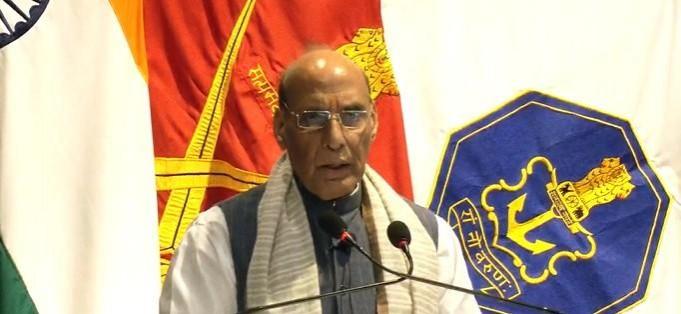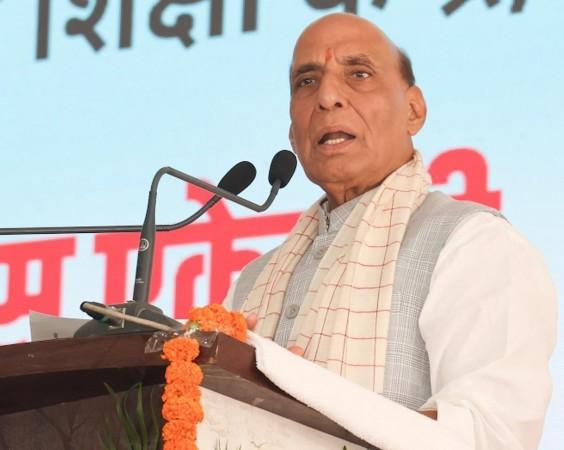
India's Defence Minister Rajnath Singh recently addressed the 'Ran-Samwad 2025' Tri-Service Seminar at the Army War College in Mhow, Madhya Pradesh, emphasizing India's commitment to peace while being prepared to respond decisively to any threats. Singh reiterated India's historical stance of non-aggression, stating, "India has never been a nation that seeks war. We have never initiated aggression against anyone." However, he acknowledged the changing geopolitical landscape, which necessitates a robust defense posture to safeguard national sovereignty.
The seminar, a first of its kind, brought together the three branches of India's armed forces to discuss the evolving nature of warfare and the role of technology in modern military strategy. Singh highlighted the dual nature of the seminar's theme, 'Ran-Samwad,' which translates to 'Battle Dialogue.' This theme encapsulates the balance between readiness for conflict and the pursuit of dialogue and reconciliation. Drawing parallels with the ancient Indian epic, the Mahabharat, Singh emphasized the importance of dialogue even in the face of potential conflict.
Prominent military leaders, including Chief of Defence Staff General Anil Chauhan, Chief of the Air Staff Air Chief Marshal A.P. Singh, and Chief of Naval Staff Admiral Dinesh Kumar Tripathi, were present at the event, underscoring its significance in shaping India's defense strategy. Singh stressed the rapid transformation of modern warfare, driven by technological advancements, and the need for precision-guided weapons, real-time intelligence, and data-driven decision-making as the cornerstones of military success.
Technological Advancements and Strategic Priorities
Singh emphasized the expanding domains of warfare, which now include outer space and cyberspace, in addition to land, sea, and air. He stated, "Modern battles are no longer confined to land, sea, and air; they now extend into outer space and cyberspace."
This expansion requires a proactive strategy that encompasses satellite systems, anti-satellite weapons, and space command centers as new instruments of power. Singh identified technology, intelligence, economy, and diplomacy as the key drivers of future conflicts, highlighting the need for a comprehensive strategy that integrates these elements to ensure national security.

The seminar also served as a platform to discuss India's strategic priorities in the context of global security challenges. Singh reiterated the importance of mastering the "triangle of technology, strategy, and adaptability" to emerge as a global power. "In the times ahead, the nation that masters the triangle of technology, strategy, and adaptability will emerge as the true global power," he asserted. This holistic approach underscores the need for a comprehensive strategy that integrates these elements to ensure national security.
In addition to the primary source content, several related news items provide further context to India's defense strategy. For instance, Singh's remarks at the 'Ran Samvad' conclave in New Delhi emphasized the need for India's armed forces to be prepared for a range of security challenges, from short-duration conflicts to prolonged engagements. This readiness is crucial in an unpredictable geopolitical environment where traditional measures of military strength, such as troop numbers and weapon stockpiles, are no longer sufficient.















